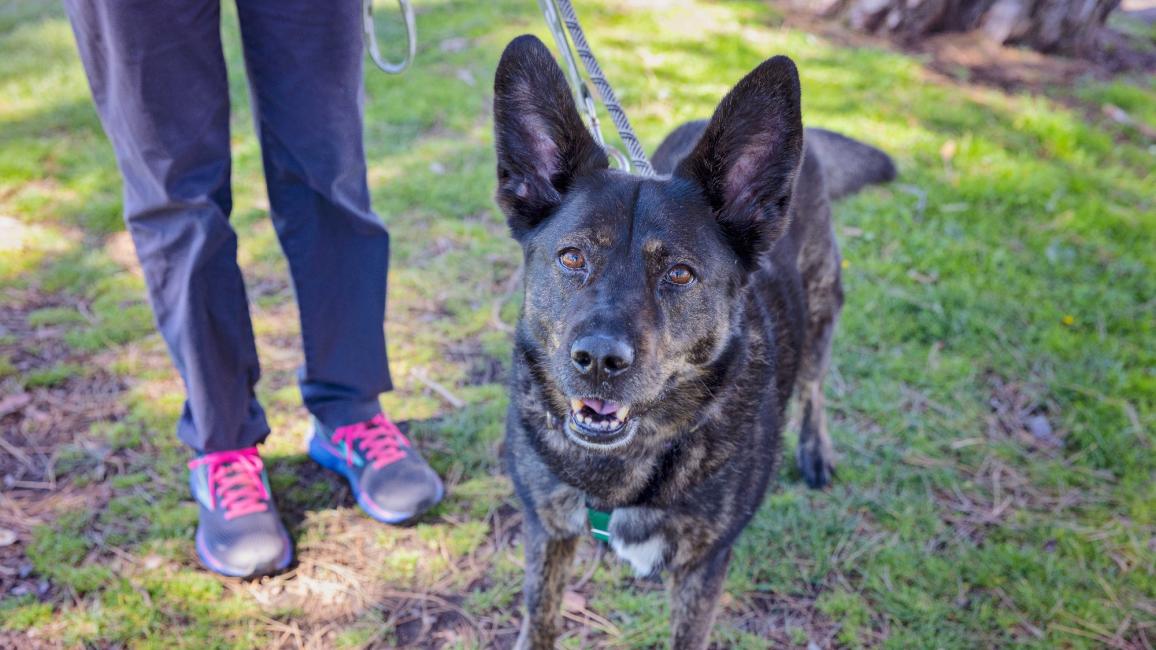Public support is the answer to Los Angeles Animal Services' crisis

Los Angeles Animal Services is at a critical time in its history. The general manager Staycee Dains—appointed by Mayor Karen Bass in 2023—and her team are grappling with a shelter system that is at capacity, and are looking to implement common sense solutions to avoid killing the dogs in their care.
When Mayor Bass appointed Ms. Dains, she said there was much work to be done to ensure that all the animals of the city are cared for compassionately and responsibly. Kudos to Mayor Bass for recognizing that there was much work to be done. But now, I urge the mayor and the city council to support Ms. Dains with what she needs to get Los Angeles Animal Services (LAAS) back on track with the vision of a no-kill animal services department laid out by previous administrations and councils.
Ending the killing of dogs and cats in Los Angeles city shelters is not new territory for the city. When former general manager Brenda Barnette was hired in 2010, it was with the explicit charge from the mayor and city council to make Los Angeles a no-kill city. That commitment was reinforced in 2017, when the mayor and the city council passed a formal resolution pledging to make Los Angeles a no-kill city.
By 2020, Los Angeles had achieved the benchmark save rate of 90 percent or higher. That accomplishment was the result of years of collaboration between the city, the No-Kill Los Angeles Coalition (NKLA), and, importantly, the animal-loving public. This placed Los Angeles at the forefront of progressive sheltering in the country as they became the largest city to claim that title.
In 2017, when Los Angeles passed its no-kill resolution, only 23 percent of US shelters were no-kill. Today that number has surged to 57 percent of all shelter systems nationwide.
Sadly, Los Angeles has fallen out of those ranks and the consequence of that decline has surfaced as a major public concern over the uncertain fate of hundreds of dogs in the city’s now overcrowded shelters. Rightfully so.
Los Angeles Animal Services, like every city agency and private business, has faced many challenges since the pandemic. But animal services is unique in that the animals in their care, their stories, and their lives resonate deeply with Angelenos, a community known for its inclusion of dogs and cats as part of the family. There is an enormous and largely untapped reservoir of support for shelter pets that can translate into foster care givers, adopters, and volunteers to help in-shelter and help manage critical lifesaving programs.
Los Angeles Animal Services needs to have a structure in place that will support a no-kill commitment and, most importantly, invite the public to support the effort. The people of Los Angeles are tried-and-true pet lovers and if you trust them with the truth, they will step up and be the solution for current and future challenges.
A no-kill community is more than a shelter. It is an engaged public that understands how homeless pets are valued — a critical health marker for any city. How we treat the least powerful among us says a lot about who we are.
Community engagement is essential to achieve this goal. It's not a sign of weakness or failure to ask the community to be part of the lifesaving solutions. Successful organizations across the country have robust volunteer, foster, and adoption programs and specialists assigned to pathway planning for every animal that comes into the shelter. They also communicate with the public regularly about lifesaving needs.
I urge Mayor Bass to give Staycee Dains and the Los Angeles Animal Services team her wholehearted support for engaging the public at this critical stage of lifesaving for Los Angeles shelter pets. It’s the right thing to do.
-Julie
